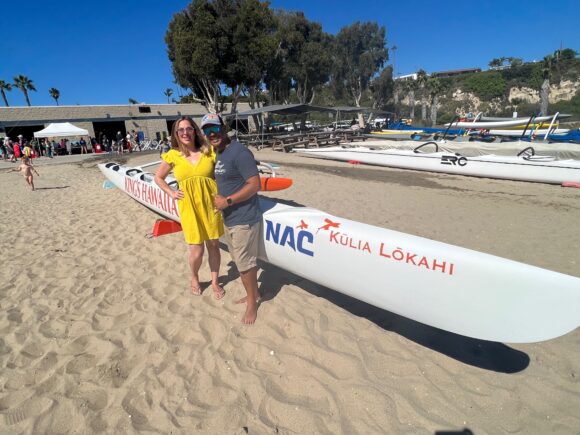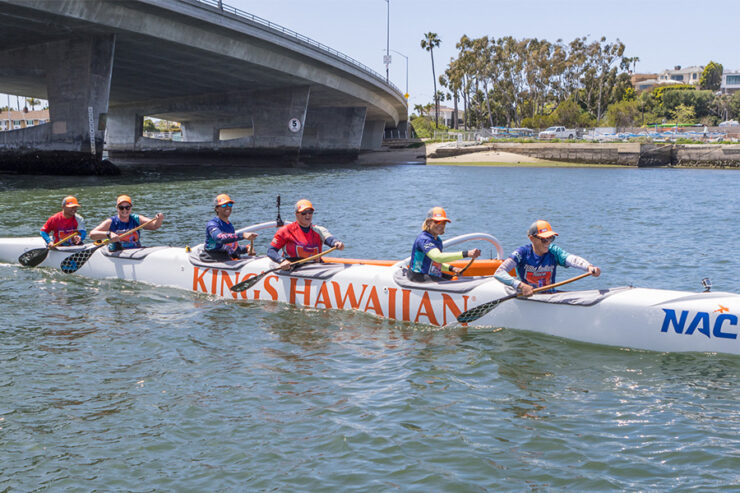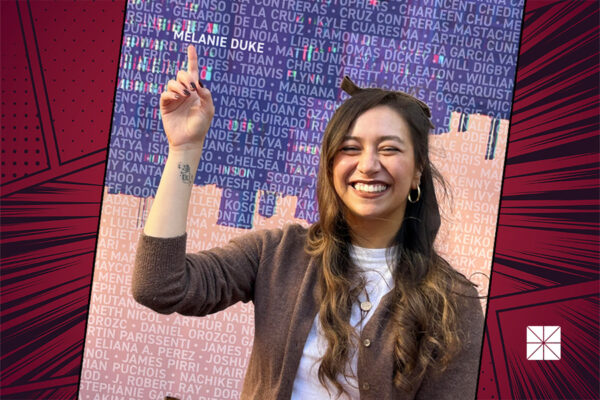Committed to championing active lifestyles through inclusive outrigger paddling programs, nonprofit Makapo Aquatics Project is making waves by catering to people with diverse abilities, their families and friends.
Makapo’s journey began with the idea to provide paddling opportunities for persons with visual impairments. This vision has since expanded to include people with a wide range of disabilities. For Margaret Moodian ’03, Ed.D., the journey started during her freshman year at Chapman, when she joined the Delta Gamma sorority.
“Our philanthropy focuses on aiding the blind and visually impaired, which made Makapo a perfect nonprofit for us to support,” Moodian explained. Her connection to Makapo deepened when her mentor introduced her to RJ De Rama, Makapo’s executive director. “I created a relationship between our alumni group and Makapo, and eventually, RJ asked me to join the board of directors.”

Makapo offers a variety of programs tailored to accommodate diverse abilities. These programs range from recreational paddling sessions to competitive training for athletes. Employing various strategies to ensure inclusivity, Makapo implemented remote controlled steering technology, which allows visually impaired paddlers to navigate effectively.
Rob Octavio, conservatory operations coordinator at Hall-Musco Conservatory of Music, who serves as head coach and athletic director for Makapo, explained, “The device is called a Cooperative Outrigger Paddling (CoOP) System, and it allows an operator to steer visually impaired or blind paddlers during training and races. Paddlers can train without another individual paddling with them and don’t need constant verbal directions.”
Moodian recalled participating in blindfolded paddling events to understand the challenges faced by visually impaired paddlers. “It is an incredible experience being on the water like this, and you realize what a special opportunity this is for persons with disabilities.”
The impact of Makapo’s programs extend beyond the water. Both Moodian and Octavio often attend Ohana Days, where families that are positively impacted through Makapo celebrate and support each other. “Meeting families whose lives have been positively impacted by Makapo is heartwarming,” said Moodian.
The Makapo Community
Jana Remy, Chapman’s assistant vice president of educational technology, a leg amputee and a competitive athlete, discovered Makapo during a local outrigger race 10 years ago. “I’ve been paddling with ‘able-bodied’ teams for almost 20 years, but I knew I could improve with coaching tailored to my needs,” said Remy. “Joining Makapo was a good choice. The coaches push me harder than ever, and it has made a huge improvement in my outrigger stroke technique.”
“In six months, I’ve had some of my best racing experiences because of the quality of coaching and the commitment of my teammates,” added Remy. Her dedication paid off when she qualified for the World Va’a Sprint races in Hilo, Hawaii.
Remy speaks highly of her teammates, describing them as “amazing folks with rich life experiences and powerful athletic abilities.” The team spirit and mutual encouragement are central to Makapo’s success. “We push each other to our capacities,” Remy added.
Looking ahead, Makapo aims to expand its reach, with plans to establish more locations in areas like Hawaii and New York. “Makapo will introduce the CoOP system to other international para-paddling programs at the International Va’a Federation World Championships this August in Hilo, Hawaii,” added Octavio.
“The long-term goal is to have outrigger paddling recognized as a therapeutic activity, similar to equine therapy,” said Moodian. “Paddling on the water is very therapeutic.”
Remy believes that Makapo’s approach to leadership and decision-making sets it apart. “Makapo integrates disabled individuals into leadership roles, making it truly inclusive,” she said. “The phrase ‘nothing about us, without us’ is especially important within the disabled community, where autonomy and self-advocacy have long been denied.”




